Are We Really Ready for the Digital Revolution?
by Luca Zappaterra
ANIE Automazione Managing Board
Digitalization is changing everything. We realize this in everyday gestures: we no longer buy music CDs but liquid music, no more movies on DVD but TV on demand in streaming, we can book restaurant with the smartphone, or let us bring dinner directly at home, or book a bicycle and withdraw it anywhere in the city. This is a real technological revolution, but at the same time these technologies are generating new business models and revolutionizing existing ones.
Car-sharing is one of the most evident examples: with these new technologies you can book a car wherever you are, find the nearest parked one and pay the service for its real use. In this case we are going from the property of the asset to pay per use, and it is not difficult to suppose that what has been considered a status symbol for years, that is the owned car, becomes only a distant memory, in favor of a rented car and maybe shared with others.
In the same way, this model can be applied in the industrial sector: through digital technologies it is indeed possible for a production machines manufacturer to monitor their actual use in the plant, to diagnose their correct operation, to remotely intervene to resolve any problems without moving the technician from his office, but making him interact remotely with an end customer’s technician.
The next step can be to change the business model, i.e. not to sell the machine anymore, but to sell its use and all the services related to it. The customer will no longer own the machine, but will pay based on its operating time, proportionally to its performance and reliability, and will also pay for all the data it produces.
This is also a real revolution, more complex in its realization than the simple technological revolution, because in this case we do not replace equipment, but we must change the approach to the market and the
customer-supplier relationship. It is rather easy to replace a serial cable with an Ethernet cable, a keyboard with an operator panel, fill a machine with sensors and collect all the data in a database instead of writing them on a piece of paper.
Another thing is to convince ourselves that even the sales models we have used up to now can change; the real question that we must ask ourselves is not therefore whether we are ready to accept the technological innovations, but if we are able to accept the changes that they are bringing to our way of doing business.
